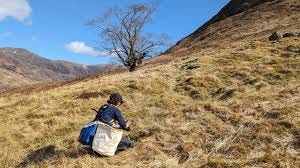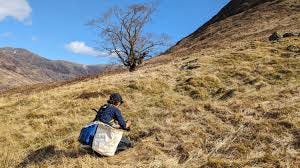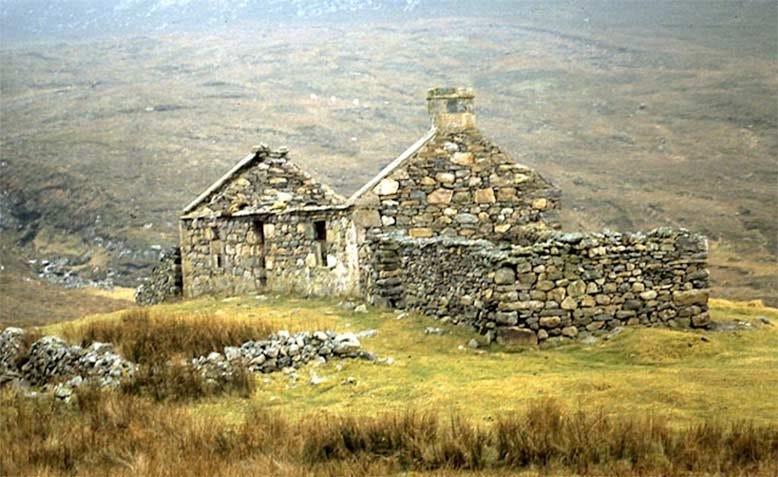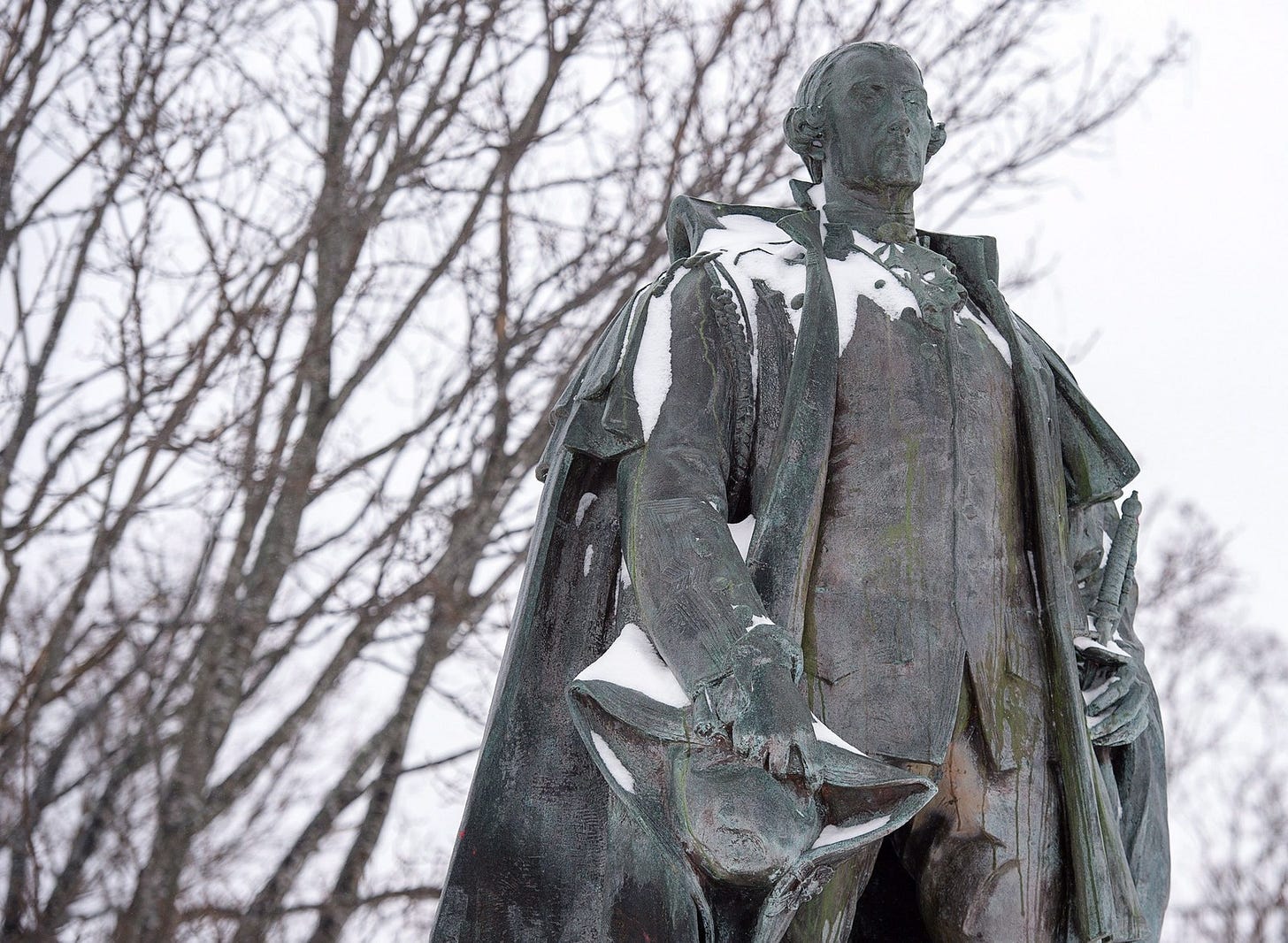Eviction Noticed: Scotland's Forgotten Exodus to Nova Scotia
What's left to be learned from the Highland Clearances about life and living
The wet, muddy peat moss absorbed the blood into the ground as quickly as it was spilled. Through the rainy grey first weeks of April over 80 of the strongest and most able Chisholms in Strathglass, the ancestral valley of the clan just west of Loch Ness, prepared for a last desperate battle. On April 16th they met with their fellows on the rolling hills of Culloden moor and together met their fate. Regular people. Fighting an English army.
About 30 were killed outright in the field. The rest were hunted with dogs. The commander of the English army, Edward Cornwallis, had orders to destroy. And that’s what they did. Properties were looted and burned, livestock was driven off, crops were destroyed, women and children were brutalized and families were burned alive in their homes.
By April 19th only three of the men could be accounted for. And they were in chains. Summer and all that was hoped for never came.
Alden Nowlan, in his style of poetic blank verse, put it all more plainly:
A people who had outlived their gods
The last of the old barbarians
Destroyed by the first of the new
Magnificent fools
Who threw stones and handfuls of dirt
At the cannons and guns until they themselves
became part of the earth
The chief of the clan came to political terms with the army and the mercantile farming interests they represented.
The next 50 years were bleak and dark. Little was accomplished. Barely survival.
Then things got much worse. The population of Strathglass and the surrounding glens was decimated as they were forced to leave their homeland forever. This was a harsh desperate time where human lives counted for nothing.
Elizabeth, the widow of the clan chief, struck a deal with two sheep farmers, Thomas Gillespie and William MacKenzie. She would clear the land in return for her only son’s entrance to Cambridge and a new life in the south.
In 1801 alone almost half the people were driven out of the valley. By 1809 nearly 10,000, the entire population, had been evicted and only one token tenant remained to supply the itinerant sheep farmers. Many went south or took passage to the Carolinas. By the end of 1801, more were falling for a merchant’s scheme of immigration to a place they seductively called Nova Scotia. New Scotland.
Three ships, the Sarah, Nova, and the Dove, left the Chisholms of Strathglass broken on a dark cold rocky shore so terrible and terrifying that many wished themselves back in the sights of the English cannons.
Over 200,000 acres of human lives were traded for Cheviot sheep. In the census of 1871 only 41 Chisholm households were counted remaining.
Donald Chisholm, who left Strathglass for Nova Scotia in 1803 at the age of 68 and settled near Antigonish, wrote a poem called ‘When I was young in Strathglass’ (‘Bah mi ogam a Strathglais’) in it he expresses his sorrow at having to leave home in old age and his anger at the clan chiefs for betraying the old social order.
When I was young in Strathglass
I had no thought of leaving,
Now that the great men have gone, I too, shall leave
The coward who now rules us
Evicted his own, few remain
He prefers sheep in the hills to a kilted clan.
Accounting for what was lost is impossible.
The people. The land. The language. The ideas. The art, music, and culture.
And the mark left is brutal. Even today as others, innocent strangers to the place, live and work on our scarred lands, and build their lives on our foundations, we are pushed into a new Babalon and again, after 200 years of peace, we are asked to count ourselves as strangers in a strange land.
What can we the living think or say of history’s battles and the new battles of words? What meaning or motivation can we glean? What lesson can be learned?
Maybe the correct answer to all this is silence.
Time passes.
200 years is a long time to feel cross. I think about it in my family. I see it in other families of highland heritage. I feel in many of us there’s still a sense of echoing sadness. A darkness. Often hopelessness. A pinch or two of that dirt. The sense there’s a great army lording over us. Our heroes are killed. And our leaders betray our trust. We bicker among ourselves about what to do and how to work together.
It’s only in the past few years that scientists have begun to understand how memories can be inherited. They call the new science Epigenetics, the ways our life experiences can be passed on to our children.
By the time I came along four generations later my family had only progressed a few miles from the rocky shore where they were left in Nova Scotia. Economically and socially, they had not progressed at all. Coal mining mixed with black rum slows human progress like molasses. Such are the wounds that travel through time.
Each year, in the long wet wait for summer that feels like it will never come, I remember.
On other Springs I’ve trekked out to the battlefield at Culloden where those first men fell and I've stood alone. I try to keep my mind away from it now. But I can see my son Jack’s thoughts pulled to those forests and fields. And those dark thoughts of hopeless battle and betrayal must now be… somehow… shuffled into the deck of what is expected of the modern man in a new game without rules - except that he must lose… again.
I think it’s the struggle in itself that is the lesson. To stay human in the face of horrible history, to trust, to believe, to hope, to be happy and open, is the only way forward. Those who fear lies, betrayal, violence, and dark times don’t really live at all. Worse off still are those who try to impose meaning and message. They are bitter.
Carrying the burden of bitterness is the only way to really lose at life.
We all go through things that are not fair. People do us wrong, we worry about money, our bodies fail us. You can't stop life from happening to you but you can choose how you respond.
If you hold on to the hurt, you go around dwelling on the offense, thinking, "Why did they say that about me? Why did I lose my loved one? Why did that friend walk away"? Then you're opening the door to bitterness. When you're bitter, it affects every area of your life. Bitterness poisons your attitude to where you see things in a negative light.
Bitter people don't have good relationships, they're easily offended, they'll jump down your throat for the smallest thing. It's not you, it's the bitterness coming out, and you may have a good reason to be bitter, something was unfair, but holding on to it is only going to make it worse. It's going to steal your dreams, rob you of your joy. Bitterness can keep you from your destiny.
Often other people, even close friends, will sow the seeds of bitterness in you, and cultivate it because the growing root of bitterness gives them power and control over you. Politics is like that. Dredging divisiveness and despair. They don't want you to forgive because then their power is lost.
You don't have to call it defeat or failure. You don't even have to call it forgiveness. Nor must you forget. You can still remember. You just have to leave the memories where they belong.
Flower of Scotland is an old tune with lyrics that have become a sort of unofficial national anthem for Scotland and people of Scottish heritage. It recounts an even older battle, Bannockburn, and the notion that we can rise above these vestigial thoughts of battle and do better. The most hope-filled verse begins,
Those days are past now,
And in the past, they must remain...








